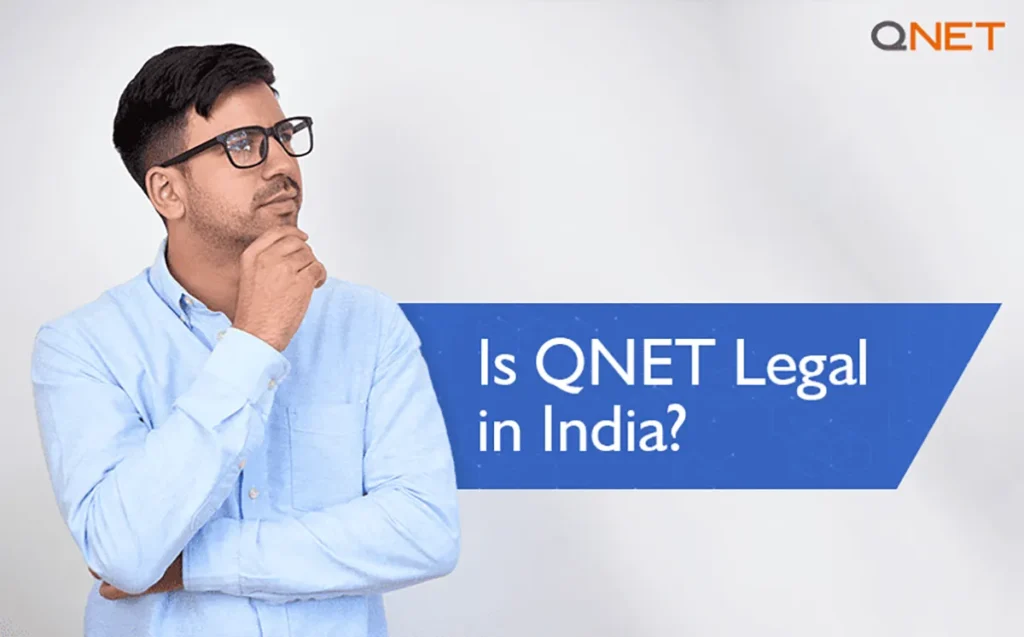Is QNET legal in India, and is it registered? Why do QNET scam allegations surface in the media?
Find answers to the most important questions about QNET’s Corporate Governance.
1. Is QNET registered in India?
QNET is registered in India and operates through its sub-franchisee, Vihaan Direct Selling (India) Pvt. Ltd. It is incorporated under the Companies Act, 1956 and allotted No. U52399KA2011PTC060730.
2. Is direct selling legal in India?
Direct selling is one of the fastest-growing industries in the country. Here are a few interesting facts about the direct selling industry in India –
- The direct selling industry will is expected to reach a value of ₹ 64,500 Crore by 2025. (Source: The Hindu)
- The direct selling sector will generate self-employment for more than 18 million individuals by 2025
- The industry has a Compounded Annual Growth Rate (CAGR) of 4.8 per cent with 12.1% Y-o-Y growth. (Source: Economic Times Report)
In addition, India’s Ministry of Consumer Affairs, Goods and Public Distribution issued The Direct Selling Guidelines in 2016, which was a major implementation to prevent fraudulent business practices and protect consumers’ legitimate rights and interests.
So, the answer to the question – Yes, direct selling is legal in India and presents a great opportunity for entrepreneurial growth.
3. Is QNET legal in India?
Yes, QNET is legal in India, and its sub-franchisee – Vihaan Direct Selling (India) Pvt. Ltd. is registered under the Companies Act, 1956. It is one of the leading direct selling companies that aims to empower people by providing world-class products and an opportunity for aspiring entrepreneurs to start their direct selling business.
QNET complies to the Direct Selling Guidelines 2016. These guidelines aim to strengthen the existing regulatory mechanism of direct selling. Moreover, QNET complies with all the statutory requirements of the country and makes it mandatory for its distributors to pay taxes as per the local laws.
QNET has been in the industry for 23 years, and it has been providing a platform for millions of individuals to realise their dreams and become successful business owners. In addition, QNET has been supporting various philanthropic activities in India through its CSR-arm RYTHM Foundation.

4. Why do QNET Scam allegations surface in the media? Why does an individual find so many complaints filed against the company?
QNET scam allegations are primarily driven by vested interested groups or a set of motivated Individuals.
First and foremost, we need to understand the circumstances under which the allegations are made. People often misconstrue a legitimate direct selling business with a pyramid or “get-rich-quick” scheme. So, one of the main reasons for these allegations is that most people get alluded to the idea of getting rich quick without much hard work. This leads to unexpected outcomes or failures in the business.
However, QNET maintains that all distributors need to invest time and effort before being able to build a sustainable business. Also, like any other business, it would involve certain risks that an individual needs to assess before signing up for the opportunity.
Furthermore, there is misinformation spread about the business opportunity. Some individuals are misled into the business with false information about the business and products. In some cases, false promises are made to entice people.
To combat misrepresentations and malpractices, QNET instils a strict code of professional ethics for the distributors and penalises those who violate its Policies and Procedures. This includes misleading or misrepresenting the opportunity.
QNET further encourages individuals to thoroughly do their due diligence to understand the opportunity and assess the risks. This ensures that the individual is fully aware and can decide for themselves about the company.
There is also a need for a governing body to represent and regulate the direct selling industry. This would further help in distinguishing between scams and direct selling companies.
5. Why has the company changed its name so many times?
The name of a company changes for multiple reasons, including marketing, branding and business offering variations. Many companies across the globe have changed their names in the past. In QNET’s case, the reason for the change in name was due to a rebrand and expansion of product portfolio and offerings.
In hindsight, the company has been vastly successful over the years and millions of distributors across the globe welcome the name ‘QNET’.
6. Does QNET ask distributors to invest a certain amount before joining?
QNET doesn’t ask individuals to invest any amount. It is important to note that QNET is not an investment scheme. In fact, there is no joining fee to register as a QNET distributor in India.
Individuals buy QNET products at their discretion. Further, if they enjoy using the products, they refer them to others and subsequently earn commissions and rewards for the referral. It is the individual’s choice to refer and expand their business.
If the distributor chooses to expand, it would require time and hard work to grow the business. QNET further encourages individuals to fully understand the opportunity and assess their situation before registering for the opportunity.

7. What practices does QNET enforce to ensure that individuals are not misled during registration?
QNET has a Standard Operating Procedure to verify the identity of an individual and help in integrating them into the business plan. Here are a few important steps that QNET follows to ensure that distributors are not misled during registration –
- On successfully providing the basic details, the individual receives a call from the company’s customer support team with a checklist to ensure that the individual is aware of the terms and understands the opportunity. This process further confirms the individual’s consent to sign up as a distributor.
- The next step is a standard KYC check to verify the individual’s identity, either through their PAN card or Aadhaar card.
- The individual then needs to submit a cancelled cheque to verify his/her bank account.
- One Time Password (OTP) is sent to the individual’s registered mobile number to authenticate the registration process.
- The individual’s registration is finally complete and receives an ID card.
QNET further advises new distributors to log in to the Virtual Office (VO) and find all the documents related to the business.
This is the active procedure that QNET follows to ensure that individuals are not misled during their registration process.








